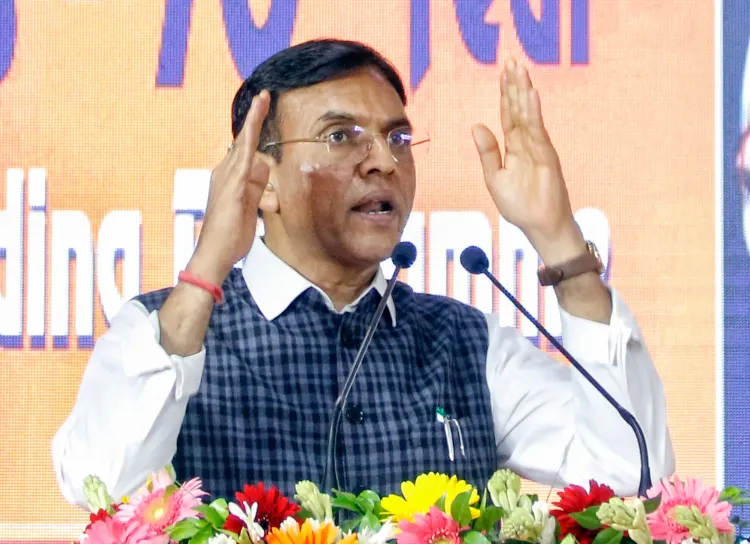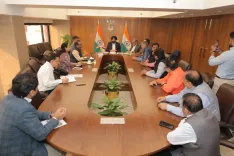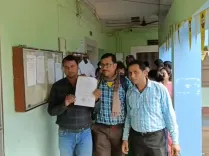How Can Suggestions Enhance the Draft National Labour and Employment Policy?

Synopsis
Key Takeaways
- Consultative Approach: The government is open to feedback from various stakeholders.
- Worker Welfare: Central focus of the policy is to enhance the welfare of workers.
- International Standards: The policy aligns with ILO standards and SDGs.
- Collaboration: A strong collaborative effort between employers and CTUs is emphasized.
- Future Framework: Aims to create a robust labor governance framework for the future.
New Delhi, Nov 13 (NationPress) The government announced on Thursday that the draft Shram Shakti Niti-2025 (National Labour and Employment Policy of India) will only be finalized after integrating valuable enhancements proposed during multiple consultations, focusing on workers' welfare.
Labour Minister Dr. Mansukh Mandaviya led a tripartite discussion regarding the draft Shram Shakti Niti-2025 with members from employers' associations and Central Trade Unions (CTUs) in attendance.
Mandaviya emphasized that the collective goal is to work together to develop the most effective vision document for a fair and resilient labor market.
He highlighted that the common aim of all parties involved is to prioritize the welfare of workers and safeguard their interests, and he welcomed feedback on the draft Policy from employer associations and trade union representatives.
According to the minister, the suggestions, reflecting the extensive expertise of the contributors, will significantly enhance the policy.
Mandaviya reiterated that the draft policy remains adaptable based on stakeholder input.
Representatives from various CTUs and employer organizations acknowledged the Ministry’s initiatives in crafting a forward-thinking, comprehensive policy framework.
They commended the policy's vision and mission, its strong foundation in the Constitution, and its alignment with International Labour Organisation (ILO) standards and the Sustainable Development Goals (SDGs).
CTUs reaffirmed their previous recommendations and provided additional suggestions to bolster worker protection, enhance social security, improve grievance redress mechanisms, and expand employment opportunities. Employer organizations shared insights on fostering innovation, facilitating job creation, streamlining compliance, and enhancing the business environment while maintaining fair working conditions.
The ministry reported that the meeting concluded positively, with a strong belief that the final Shram Shakti Niti-2025 will serve as a robust, progressive, and inclusive framework to steer India's labor governance in the future.








